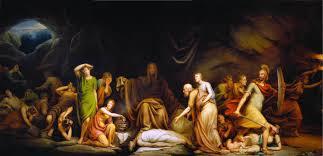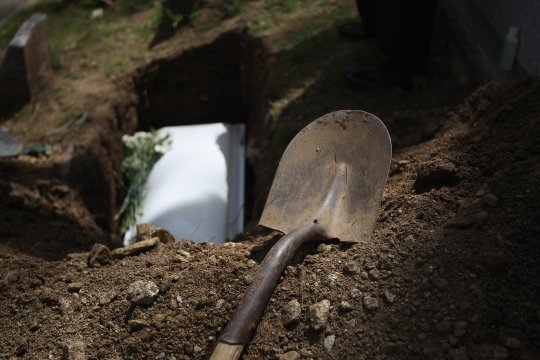In the 16th century, French philosopher Michel de Montaigne wrote: "To begin depriving life of its greatest advantage over us, let us deprive death of its strangeness, let us frequent it, let us get used to it.... A man who has learned how to die has unlearned how to be a slave," (Essays). Certainly, one of the most serious and necessary aspects of religious epistemology is the way religion compels human beings to confront the void of death. While the philosophical meaning of such a proposition shall forever remain mysterious, a tangible byproduct of not knowing our ultimate fate gives us more than enough impetus to improve our lives and the lives of others around the world.
As an understandable consequence of the unknowable providence of death, the inevitability of it provides a myriad of spiritual and moral opportunities for us to learn and reflect. To be sure, the fear of death is only natural, but this palpable anxiety can yield productive action. After we have evolved through the five states of grief model articulated by Elisabeth Kubler-Ross (the familiar cycle of denial, anger, bargaining, depression, and acceptance), we can begin to transcend prior emotional states to have our own deaths motivate and inspire our own humble actualizations.
Because of the psychological clichés about death that are so prevalent in society today, I would like to propose a newer, more radical metaphysical model, one that defines that each of person dies at five distinct moments in temporal time:
•When we stop loving life
•The irreversible cessation of our heartbeat
•When our body is lowered into the earth
•The last time our influence has any direct impact through posterity
•The last time our name is ever mentioned on Earth
With each death, there is a tendency to have an unnatural and unhealthy response:
•When we stop loving life - we seek a vacuous shell of empty ecstasy and pleasure
•With the irreversible cessation of our heartbeat - we obsess upon the external health of the body
•When our body is lowered into the earth - we seek materials over love
•The last time our influence has any direct impact through our posterity - we seek unilateral control over our legacy
•The last time our name is ever mentioned on Earth - we try to build an ostentatious reputation rather than one of humility.
One of religion's hidden potencies is the ability it can provide to each of these different death responses, especially in relation to the yearly holiday celebrations:
•When we stop loving life - we must learn to seek joy in the eternal (Simchat Torah)
•The irreversible cessation of our heartbeat - we must learn to identify our true selves as our souls, not as our bodies (Shavuot)
•When our body is lowered into the earth - we must learn to embrace material impermanence (Sukkot)
•The last time out influence as any direct impact through our posterity - we must extend our moral strivings humbly, courageously, and collaboratively (Pesach)
•The last time out name is ever mentioned on Earth - we must learn modesty before a Higher Power (Yom Kippur)
In the nineteenth century Rabbi Simcha Bunim of Przysucha, one of the great Hasidic teachers of the age, relayed his own concise epitaph. On his deathbed, with his wife crying hysterically, he turned towards her and urged silence: "My whole life was only that I should learn to die." Likewise, The rabbis taught that a baby enters the world with fists clenched and a person dies with palms open to signify that we enter wanting everything of this world but we leave modestly taking nothing with us, (Ecclesiastes Rabba 5:14).
Only two things will remain after all five of our deaths: our eternal soul and the indirect effects of all we put into the world. As we edge closer to the precipice of death, we must strive, carefully and wisely with all of our might, to cultivate our eternal soul and to put positivity into the world. That in the end is all that will last.
Rabbi Dr. Shmuly Yanklowitz is the Executive Director of the Valley Beit Midrash, the Founder & President of Uri L'Tzedek, the Founder and CEO of The Shamayim V'Aretz Institute and the author of seven books on Jewish ethics. Newsweek named Rav Shmuly one of the top 50 rabbis in America."

